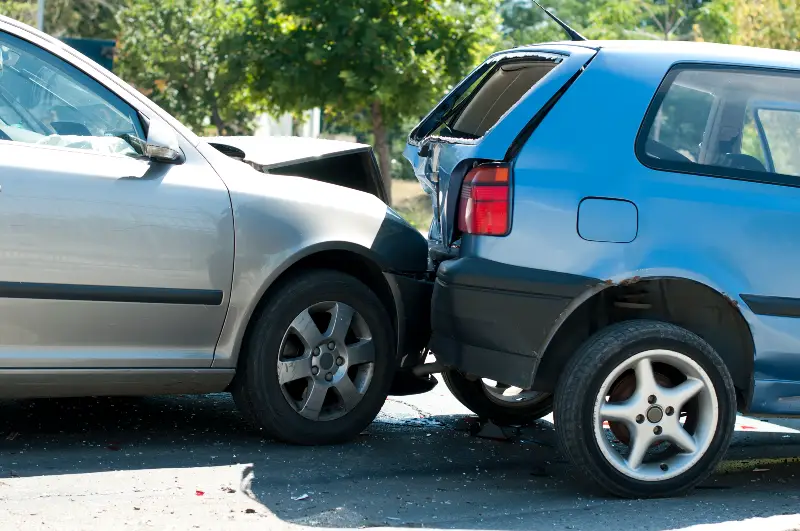Being in a car accident is a shocking occurrence, and it is even worse when you are being at fault in a crash where someone got hurt.
The steps you need to take after an accident can vary depending on such factors as your location, the extent of your car insurance coverage, and your degree of fault for the accident.
Fault States vs. No-fault States: How Does Fault Affect Car Accidents?
In most states, liability for car accidents lies with the driver who caused the accident for the damage to other vehicle and any injuries that may have arisen.
For instance, if you are 100% at fault, you would assume full responsibility in this case. The percentage of 50% at fault implies a situation where you are to be combined responsible for the damages with the other person involved in the accident and both of you would be responsible for half of the total damages occurred.
In no-fault states, the insurance of each driver pays for their damages and injuries, regardless of which driver was at fault for the accident. In some of the states, the hybrid system is adopted whereby drivers can make a claim against the at-fault party in case the accident was grave or surpassed some monetary thresholds.
How Does Car Insurance Work When You Are at Fault?
In addressing the financial and legal consequences of a car accident, the insurance cover of the driver is critical. The manner in which your car insurance works in this particular case will be determined by the policy that you have, the law in your state and the specifics of the accident.
Liability Coverage
Liability coverage is required by law in nearly every state as a part of car insurance. It pays for the damages and injuries you inflict on others when you are the one responsible for the accident.
It consists of property damage (repairing another party’s vehicle) and bodily injury (medical bills and lost wages for the other party).
The expenses will be paid by your liability coverage up to your limits, but it does not cover damages to your own car or your own injuries.
Collision Coverage
This coverage is optional, and it is designed to cover the cost of your vehicle, whatever the cause might be. If you are found to be the cause, your collision coverage will contribute to the cost of repairs of your vehicle, subject to your deductible and policy limits.
Personal Injury Protection (PIP) or Medical payments coverage
PIP can cover your medical bills.
Residing in a no-fault state means that the insurance of each driver pays their own damages and injuries, irrespective of who caused the accident. In such states, your PIP coverage will pay your medical bills and lost wages up to your policy limits.
Compensations in fault states are more difficult for the faulted party to receive in the form or personal injuries and losses. However, if you are insured against such damage, for example, if you have medical payments coverage for medical expenses, you can be paid some compensation.
Uninsured/Underinsured Motorist (UM/UIM) Coverage
This coverage is mostly for accidents that are caused by the drivers who do not have adequate insurance, but it can also come into play if you are at fault and the other party’s insurance is not enough for their damages or injuries.
When such situations arise, your UM/UIM coverage may come in handy in settling the rest of the expenses, subject to your policy limits.
Will Insurance Fix Your Car if You’re at Fault?
If you are the one who caused the accident, your basic liability coverage does not cover the repairs or replacement of your car. Like it was stated earlier, you would then need collision coverage to pay for the damages of your car.
Note that collision coverage usually has a deductible, which is the amount you have to pay before your insurance.
For example, if your collision coverage has a $500 deductible and the total repair cost is $2,000, you will pay $500, while your insurance will cover $1,500.
No collision coverage means that you are responsible for the repair of your car.
Do You File a Claim If You’re at Fault?
Of course, the fact of claim lodging with the insurer is essential in any event of the accident even when you are guilty. Your insurer’s accident report is a crucial part of the claims process, since, through it, they consider you covered from legal or financial consequences.
Here’s why filing a claim is important when you’re at fault:
Fulfill Your Policy Requirements
In most insurance policies, you need to notify the insurance company of the accident immediately even if it is not your fault. In case you do not declare the accident, your claim may be rejected and your policy may be canceled.
Protect Yourself from Liability
When you make a claim, the insurance company will look into the accident and determine who caused it. Even if you believe that you are completely at fault, the investigation will find out that the fault is a fault-sharing between both of you and the second party.
Further, the other party’s claim against you will be handled by your insurance company, which will provide you with both financial and legal protection.
Take Advantage of Your Coverage
Even if you are at fault, if you have the right insurance coverage, like collision or medical payments coverage, you may still get compensation for the damages and injuries. With a claim, you are able to benefit from these services and to prevent yourself from paying extra costs that could be covered by your policy.
When making a claim, be truthful about accident details and provide your insurer with anything that they may need such as pictures, witness statements, and a copy of the police report. The insurance company will walk you through the claims process and inform you of what you are covered for and any possible deductibles or policy limits.
What Should You Do After a Car Accident You Caused?
1. Move to a Safe Area
If you can, relocate your vehicle to a safe area, such as the road shoulder.
2. Check for Injuries
Make sure that all the people who are coming to be involved in this process are safe, you included. Contact 911 if someone is hurt.
3. Remain at the Scene
Always stick to the scene of an accident. If you flee the scene, you can be charged with a crime, fined, and have your driver’s license suspended.
4. Call the Police
Make a report of the accident, even if you are to blame. A police report is critical in an insurance claim.
5. Exchange Information
Give your name, address, contact information, driver’s license number, insurance information, and vehicle registration to the other driver involved.
6. Document the Scene
Photograph the scene of the accident, the damage to the vehicles involved and the immediate area.
7. Inform Your Insurance Provider
Do not waste time, report the accident to your insurance company. They will help you in the claims process and give you information about your policy.
8. Seek Legal Advice
If you do not know what your rights and duties are after the accident that occurred because of you, it would be better to visit a car accident lawyer. They will guide you through the legal issues and provide advice on any potential consequences or liability issues.
9. Keep Track of All Expenses
Keep a record of all costs that are involved in the accident, like medical expenses, repair charges, and other losses. This will be handy in the process of resisting against your insurance claim, and in case a lawsuit is filed.
10. Stay Calm and Cooperative
Establish a positive disposition and good manners when dealing with other accident participants, as well as police officers and insurance company adjusters. Admitting your fault or saying sorry can be interpreted as a confession, so you should abstain from making statements that would be later used against you in legal proceedings.





